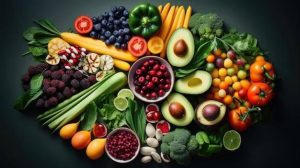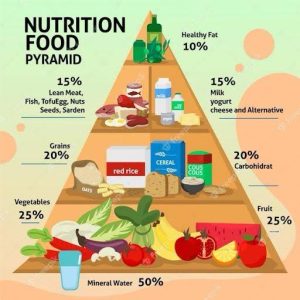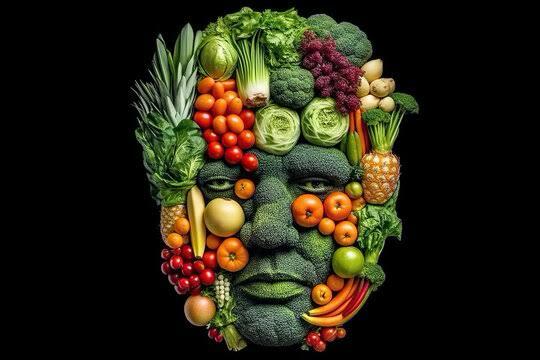In our fast-paced modern world, it’s easy to overlook the profound connection between what we eat and how we feel. We often find ourselves reaching for the medicine cabinet when we feel unwell, forgetting that some of the most potent remedies can be found right in our kitchens. The ancient wisdom of Hippocrates, the father of medicine, reminds us of this essential truth: “Let food be thy medicine, and medicine be thy food.”

This timeless advice speaks to the power of nutrition in maintaining and restoring health. Our bodies are complex systems that thrive on the nutrients found in whole, unprocessed foods. By fueling ourselves with a balanced diet rich in fruits, vegetables, whole grains, lean proteins, and healthy fats, we can prevent many of the chronic diseases that plague our society today.
The Healing Power of Food
1. Anti-Inflammatory Properties:
Chronic inflammation is a root cause of many illnesses, including heart disease, arthritis, and even some cancers. Foods like turmeric, ginger, leafy greens, and berries are natural anti-inflammatories that can help reduce inflammation and promote healing.
2. Immune System Support:
A strong immune system is our best defense against illness. Nutrient-dense foods like citrus fruits, garlic, and almonds provide essential vitamins and minerals that bolster our immune defenses.
3. Gut Health:
The gut is often called the “second brain” because of its significant impact on our overall health. Fermented foods like yogurt, kefir, and sauerkraut introduce beneficial probiotics that support a healthy digestive system and enhance nutrient absorption.
4. Mental Well-being:
Emerging research highlights the connection between diet and mental health. Omega-3 fatty acids found in fish, walnuts, and flaxseeds, for example, are known to support brain health and improve mood.
Medicine’s Role
While the importance of diet cannot be overstated, modern medicine plays a crucial role in treating conditions that diet alone cannot address. It’s important to find a balance between using food as a preventive measure and turning to medicine when necessary. Medications can be life-saving and are essential in managing acute conditions and chronic illnesses where lifestyle changes alone aren’t sufficient.

Practical Tips for Integrating Food as Medicine
1. Plan Your Meals: Create a weekly meal plan that includes a variety of colorful vegetables, lean proteins, and whole grains. This ensures you get a broad spectrum of nutrients.
2. Stay Hydrated: Drink plenty of water throughout the day to help your body function optimally.
3. Mindful Eating: Pay attention to what you eat and how it makes you feel. This can help you identify foods that support your health and those that don’t.
4. Educate Yourself: Learn about the nutritional benefits of different foods and how they can address specific health concerns.

Conclusion
By embracing the wisdom of Hippocrates and viewing our food as medicine, we can take proactive steps towards a healthier, more vibrant life. While medicine has its place, let’s not forget the powerful role that a nutritious diet plays in maintaining our well-being. After all, true health is achieved through a holistic approach that combines the best of both worlds.

